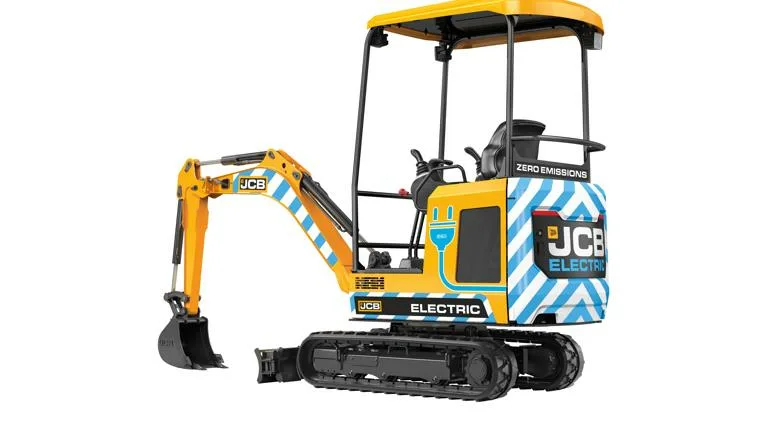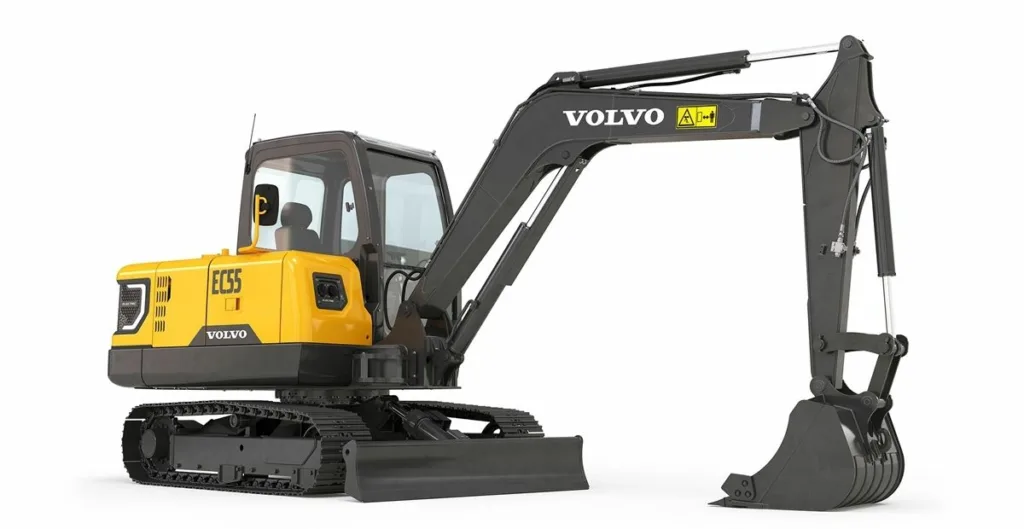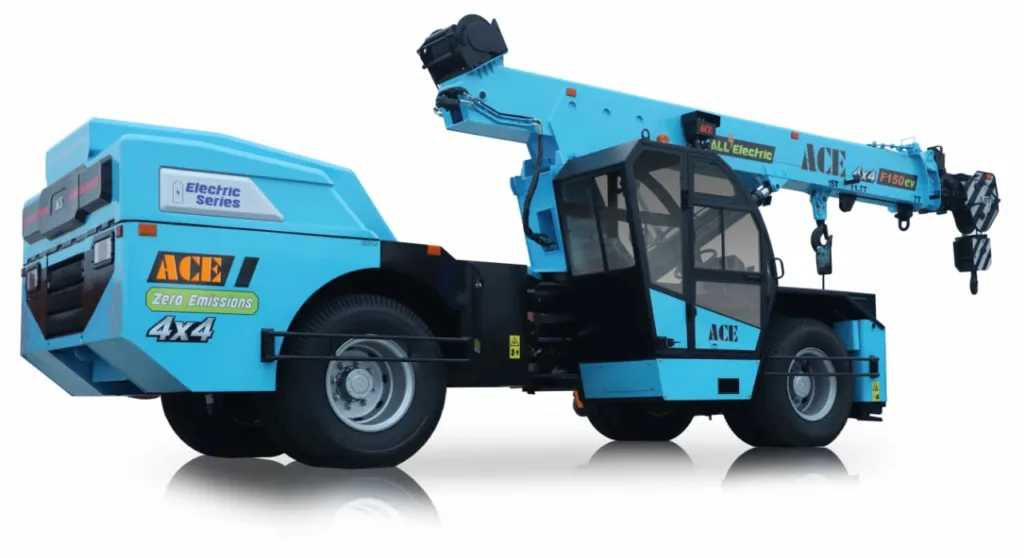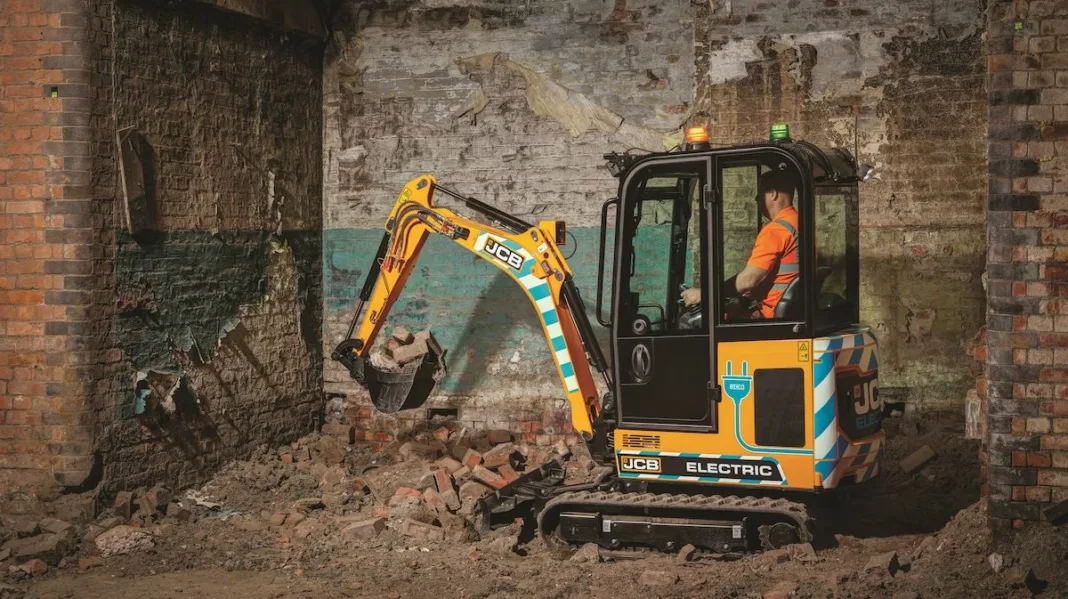Electric construction equipment refers to machinery and tools used in construction and other related industries that are powered by electricity instead of traditional fossil fuels like diesel or gasoline. By utilizing electricity as their energy source, electric construction equipment minimizes or eliminates exhaust emissions, resulting in reduced air pollution and improved environmental sustainability. Electric construction equipment are commonly used in construction projects, such as excavators, loaders, dump trucks, cranes, concrete mixers, pavers, drills, and breakers. These equipment types utilize electric motors and batteries to power their movement, lifting, digging, mixing, or other operations. Electric construction equipments also tends to operate with lower noise levels, which can be advantageous in urban areas or construction sites near residential areas. Electric construction equipment offers advantages such as lower operating costs, improved performance, and regulatory compliance with emission standards. These equipments are also seen as a more environmentally friendly option and contribute to reducing the carbon footprint of construction activities.
Advantages of electrical construction equipments
Electric construction equipment offers several advantages over traditional equipment powered by fossil fuels. Here are some of the key advantages:
1. Environmental Sustainability: Electric equipment produces zero exhaust emissions during operation, resulting in a significant reduction in greenhouse gas emissions and air pollution. This helps improve air quality and contributes to mitigating climate change.
2. Noise Reduction: Electric equipment operates with lower noise levels compared to their diesel or gasoline counterparts. This is especially beneficial in urban areas or construction sites near residential areas, as it helps minimize noise disturbances and improves overall working conditions.
3. Energy Efficiency: Electric equipment tends to be more energy-efficient than conventional equipment. Electric motors have higher efficiency ratings compared to internal combustion engines, resulting in reduced energy consumption and lower operating costs.
4. Lower Operating Costs: Although electric equipment may have higher upfront costs, they often have lower operating costs over the long term. Electricity is generally cheaper than fossil fuels, leading to potential savings in fuel expenses. Additionally, electric equipment typically requires less maintenance and has fewer components that need regular servicing, resulting in reduced maintenance costs.
5. Improved Performance: Electric motors provide instant torque, offering excellent acceleration and performance compared to internal combustion engines. This can enhance productivity and efficiency in construction operations.
6. Versatility: Electric equipment can be used indoors or in confined spaces without the risk of harmful emissions. They are suitable for a wide range of construction tasks, including excavation, material handling, concrete mixing, and more.
7. Regulatory Compliance: Many regions and countries have implemented stricter emission regulations and noise restrictions for construction sites. Electric equipment helps construction companies meet these regulations and avoid penalties or limitations on their operations.
Demand of electrical construction equipments in India
With infrastructural development, the Government of India has also had a strong focus on sustainable development and practices. In the past few years, the EV industry has been evolving with increased investment in the sector and India’s mission to reduce carbon emissions.
Sustainability has been playing a major role in shaping the future of the world and with various industries recognising the importance of building sustainable practices, it has been one of the major focuses across industries. The construction machinery manufacturers are also moving towards building sustainable practices and introducing processes that would help move the segment towards a more sustainable future. Various companies are designing new business models to make e-mobility technology viable and available within India at affordable rates. Here are some factors influencing the demand for electric construction equipment in India:
1. Government Initiatives: The Indian government has introduced various initiatives and policies to encourage the use of electric vehicles and machinery, such as the Faster Adoption and Manufacturing of Electric Vehicles (FAME) scheme. Under this scheme, financial incentives and subsidies are provided to manufacturers and buyers of electric vehicles, including construction equipment.
2. Environmental Concerns: India, like many other countries, is facing environmental challenges, including air pollution and carbon emissions. Electric construction equipment offers a cleaner and more sustainable alternative to traditional equipment, aligning with the country’s goals for environmental preservation.
3. Urbanization and Infrastructure Development: India is experiencing rapid urbanization and significant infrastructure development, including roads, bridges, metro systems, and smart cities. As construction activity increases, there is a growing need for construction equipment. Electric construction equipment can help reduce pollution and noise in urban areas and construction sites.
4. Rising Fuel Costs: The cost of fossil fuels, such as diesel and petrol, has been increasing in India. This has led to higher operating costs for traditional construction equipment that relies on these fuels. Electric equipment offers the potential for lower operating costs since electricity is relatively cheaper and more stable in terms of pricing.
5. Technological Advancements: The development of advanced battery technology and improvements in electric motor efficiency have made electric construction equipment more viable and attractive. These advancements have resulted in increased performance, longer battery life, and shorter charging times.
It’s important to note that the demand for electric construction equipment can vary across different regions of India and different segments of the construction industry. However, with the Indian government’s focus on promoting electric mobility and sustainable practices, the demand for electric construction equipment is expected to grow in the coming years.
Different electrical construction equipments in India
First fully electric mini excavator in India
JCB 19C-1E is a zero-emission machine and has four lithium-ion batteries that power the machine for a full day on a single charge. With a significant focus on safety and productivity, JCB’s 2GO system safely isolates all controls as a secondary safety system. It’s auto-idle and auto kick-up redistribute power to preserve battery life. The machine has been introduced after rigorous testing and validation. The machine has been tested extensively and has various built-in features that enhance safety and performance. The 19C-1E has maintenance free batteries, needs minimal daily checks and requires less servicing, saving rental companies, hirers and owner operators time and money.

The standard 3-battery pack of the equipment model delivers 4 hours of continuous operation; equivalent to typical use throughout a full day. The equipment comes with an optional 4-battery pack delivers 5 hours of continuous use. During use, the remaining battery charge is monitored via a gauge on the instrument panel. With three charging options-110 V, 230 V and 415 V-the the model can be put to work on a limitless number of applications and charged at any work site with access to electrical power. The electro proportional controls of the equipment feature an auxiliary thumb switch for precision control of attachments. With a low operating weight and 10 tie down points, the 19C-1E can be easily towed between job sites.
The JCB hydraulic system allows for smooth, accurate operation for improved productivity. The equipment also features Impressive 201-degree bucket rotation enables excellent spoil retention, especially when loading trucks. The canopy offers 270-degree visibility. An optional poly-screen protects the operator from flying debris when using a hammer attachment. The excavator generates less noise than many household appliances, making it ideal for urban areas and indoor applications and allowing better communication with co-workers. The JCB 19C-1E electric mini excavator is designed and built to withstand the toughest job sites, with durable components for minimal downtime.
Electric Compact Excavator
Volvo Construction Equipment has showcased its first electric offering in India, the – EC55 Electric Excavator. The model will provide at least 50 percent reduction in energy costs and over 30 percent savings in maintenance expenses. Since the energy running costs are 50% lower and the maintenance requirements simpler, the model also achieves higher uptime and a lower total cost of ownership.

The model features Two lithium battery packs of 350 V and a standard Chinese charging solution allowing operators to plug and play. The equipment can work continuously on these tasks for four and a half hours without charging or nine hours with a lunch-hour fast charge. The equipment is enabled by Volvo ActiveCare proactive monitoring, to fulfil Chinese electromobility data regulations and meet aftermarket service requirements. These in-built telematics will provide instant feedback, accelerating the company’s understanding of the excavator’s operation and performance for faster maturation and commercialization. Typical applications for this class of excavator include materials handling, site preparation in the building and construction industries, landscaping, and light utility work. The EC55 Electric will be able to work continuously on these tasks for four and a half hours without charging or nine hours with a lunch-hour fast charge.
India’s first electric mobile crane
Action Construction Equipment launched India’s first fully-electric mobile crane, ACE F150-ev 4×4. The equipment model has been specifically designed to suit both road travel and pick-n-carry use. As part of the initiative to introduce sustainable technologies; the electric crane has been specially designed to deliver optimum power and productivity, while maintaining the versatility of the equipment for Indian conditions. The crane can be used for loading, unloading, moving, shifting and erecting material.

With 4-wheel drive and required traction, this Electric Crane is suitable for rough terrain operations and is equipped with reliable safety features, including durability and stability. The model is a zero-emission machine with lifting capacity of 15 tons. The crane delivers a combination of green credentials, customer benefits, and efficiency. The model comes equipped with safety features such as hose failure protection, auto over hoisting indication, safe adjusting hook blocks etc. It comes with pneumatically operated dual circuit brakes on Front and Rear wheels.
Conclusion
More companies are investing in technology and soon there will be more electric construction equipment models available. The increased focus of the government on sustainable construction practices, energy efficiency, rising fuel costs are further propelling the adoption of e-mobility technology in the construction equipments. There has been a shift towards renewable energy sources in the past decade. These help mitigate climate change, build resilience to volatile prices, and reduce energy costs. As a result, electric mobility options are being increasingly adopted in the Indian construction equipment industry. With a strategic approach, collaboration, and continuous innovation, electric construction equipment manufacturers can position themselves for long-term success in the Indian market.
Image Source: jcb.com, volvoce.com, ace-cranes.com





